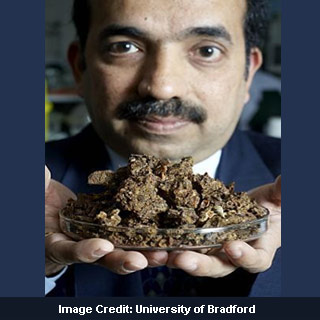
This technique probably aids in developing a new mouth ulcer gel and various other pharmaceutical as well as nutraceutical applications. The introduced propolis-based mouth ulcer gel is supposedly equipped with enhanced anaesthetic, anti-microbial and anti-fungal properties than currently available gels. This gel also appears safe for children use.
Professor Anant Paradkar, Centre Director and lead researcher and colleagues believe that mouth gels many a times have adhesion to the skin membrane inside the mouth. Propolis may retain some of its stickiness even in a water soluble formulation when it is applied to specific areas in the mouth. Therefore, it is more beneficial in treating mouth ulcers.
